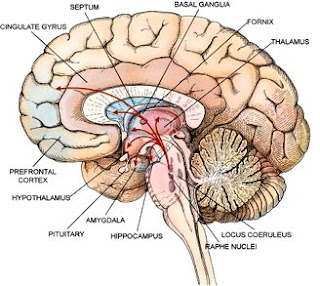Getting up in the morning and facing a very busy day ahead with a touch of nervousness to make it all happen is quite normal. However, feeling unnecessarily anxious about every day, and randomly throughout the day, about lots of things, may be signs of anxiety that has taken an unnecessary hold over you.
This type of anxiety makes you want to hide from the world and it takes away the joy of simple pleasures, creating a sense of uneasiness constantly. I
Anxiety is often irrational and unfounded, which is why people get so perplexed and feel powerless to be able to do anything to fix it. If untreated however, the effect of anxiety can compound creating further anxiety, so getting on top of it sooner than later will stop a possible snowball effect and will help you feel like you have the reigns of your life back again.
Anxiety is basically fear, which is a useful sensation because it keeps us safe. For example, if you are about to walk down a dark alley that looks a little dodgy and all of a sudden you get a sense of fear, then it is a self-preservation response protecting you from something potentially real and dangerous. But if you experience fear every day about anything that is not related to keeping you physically safe, then you need to take some action.
Depression is Fear of the Past and Anxiety is Fear of the Future
Both these conditions have two things in common – they are both based in fear and they both take you out of the present moment. Depression keeps you stuck in past traumas and unable to move forward, and anxiety stops you from taking steps toward your future because you are too scared about what might happen. Anxiety focuses your attention on what might go wrong instead of what might go right and stops you from embracing potential opportunities that the future might bring.
So let’s have a look at some of the ways that anxiety shows up:
Physical Symptoms
My heart races when I feel concerned about something. I get panic attacks. I sweat a lot when I am not exerting myself. I have a lot of stomach aches and diarrhoea. I feel dizzy quite a bit. I feel tired a lot. I shake even if I am not cold or nervous. I struggle to fall asleep. I struggle to stay asleep.
Emotional Symptoms
I am frightened by what might happen if I do something. I think bad things are going to happen to me but I don’t know what they are. I always think the worst might happen when there is no real reason to think this way. I avoid meeting new people. I feel uncomfortable when people are speaking to me. I get annoyed and irritated really easily.
Mental Symptoms
I use the words “worry” and “stress” a lot. I worry about what people say about me. I think too much about what people think of me. I obsessively think about my own problems. I think about myself and my limitations way too much. People tell me I worry too much. I often feel confused. I can’t make a decision for fear of making the wrong one.
The Impact of Anxiety on the Physical Brain
If you can identify with many of these symptoms, then you are probably struggling with anxiety. You can also take the Brain9D Anxiety Test and get some further clarification.
Anxiety can be stopped. As we said earlier, a little bit of nervousness is natural when you have a busy day, a big presentation, an exam or a job interview. Fear is a natural sensation and it keeps you safe when in potentially dangerous situations. But unfounded constant anxiety needs to be dealt with and put to rest.
If untreated, anxiety can lead to further anxiety and this can have degenerative effects on the brain and body. It can:
1. Shrink the hippocampus, which is a horse-shoe shaped structure deep inside the brain needed for spatial logic and a working memory.
2. Intensify the brain’s response to what it perceives as danger, making the flight-fright response a permanent state of being. This overstimulates the amygdala, an almond-shaped area of the brain that processes incoming sensory signals. It sends danger signals so that adrenaline and cortisol are released into your bloodstream, which are chemical transmitters intended to help you move quickly and out of danger. In other words, your body thinks it is always in survival mode, and this depletes the body of important nutrients needed for daily health and wellbeing.
3. The brain can change to adapt to whatever it is being trained for, whether it improves our wellbeing or not. The brain sets down pathways to cope and process information. It is similar to a muscle in that the more you use specific neural pathways, the more you strengthen those pathways. Therefore, the more you allow anxiety to determine the way you cope, the more you strengthen these processes in your brain.
Cognitive behavioural therapies, counselling, meditation and brain training programs can all help to re-train your brain for wellbeing.
Sign Up with Brain9D and Access our Tests, Brain Games and Resources that Promote Brain Health
Please visit Brain9D’s shop for books and resources that may help you with dealing with anxiety and become a member to receive future information about mental health and brain fitness.


Its a great pleasure reading your post.Its full of information I am looking for and I love to post a comment that "The content of your post is awesome". Great work.
ReplyDeletefriv play Games
io jogos gratis
play 2 player games
This is a great source of information, I will keep track of your posts and share them with everyone. I admire the person who wrote this post, you are so talented, hope you will promote them and become more successful.
ReplyDeletegoogy games
game friv
y8 for girls